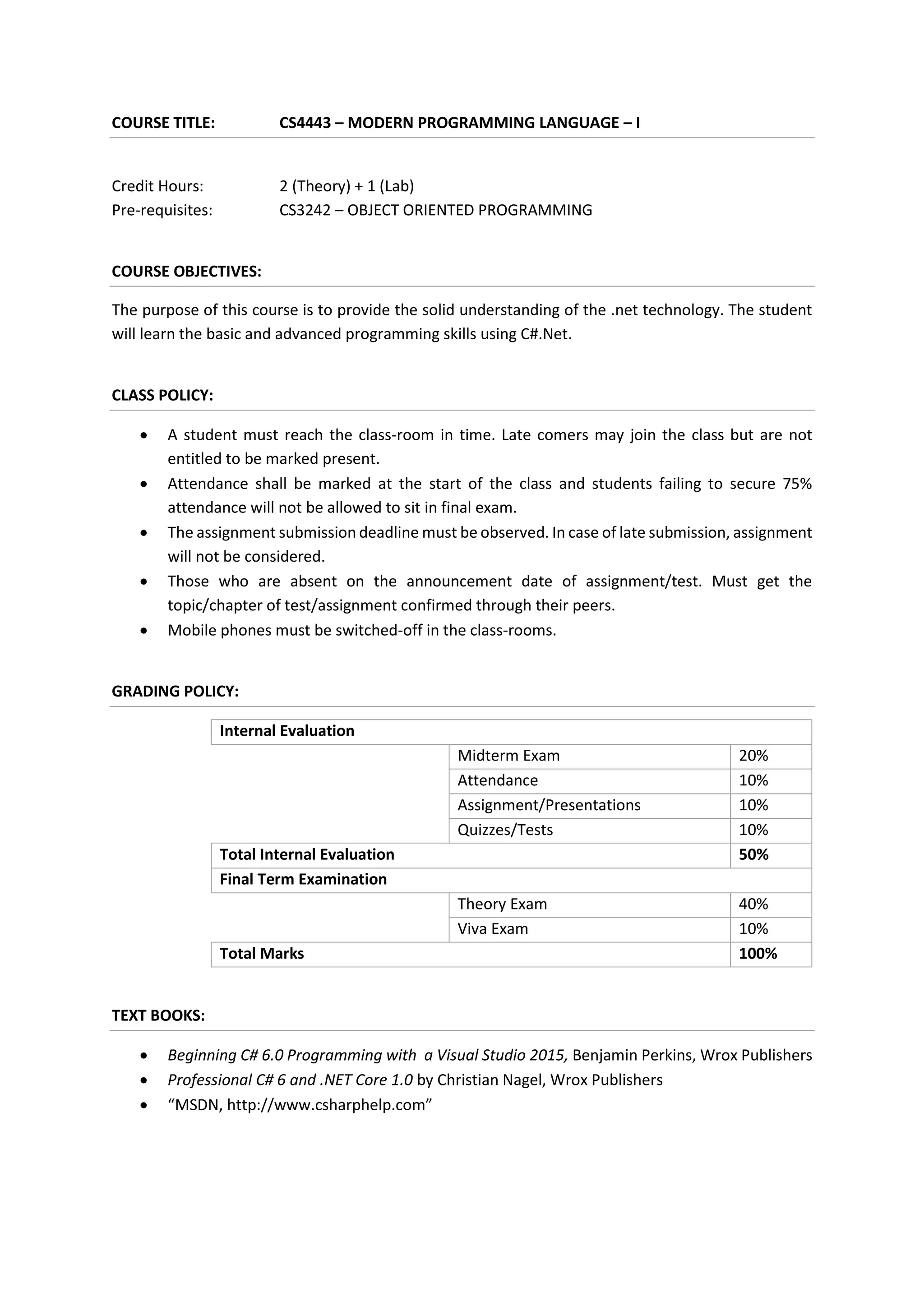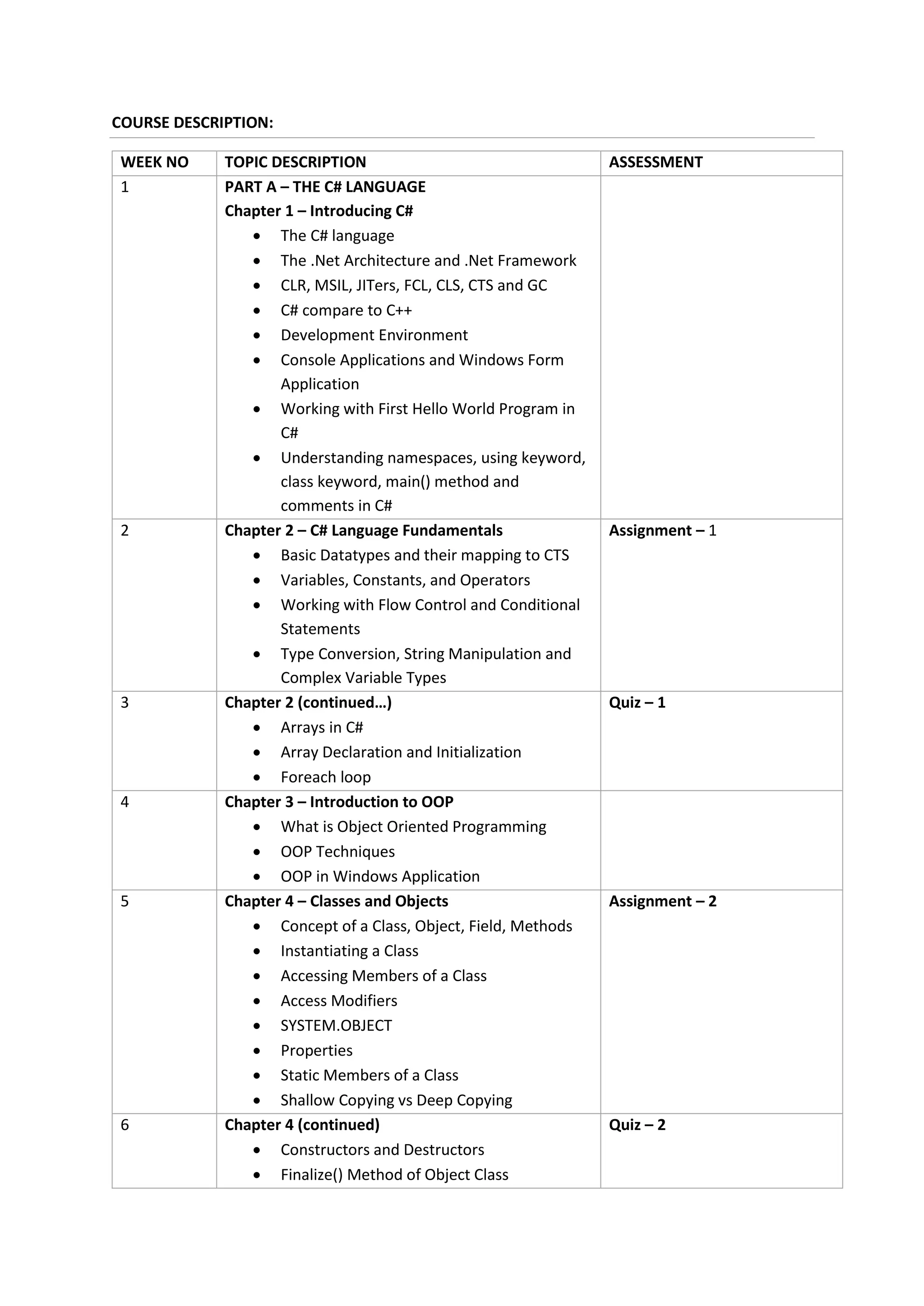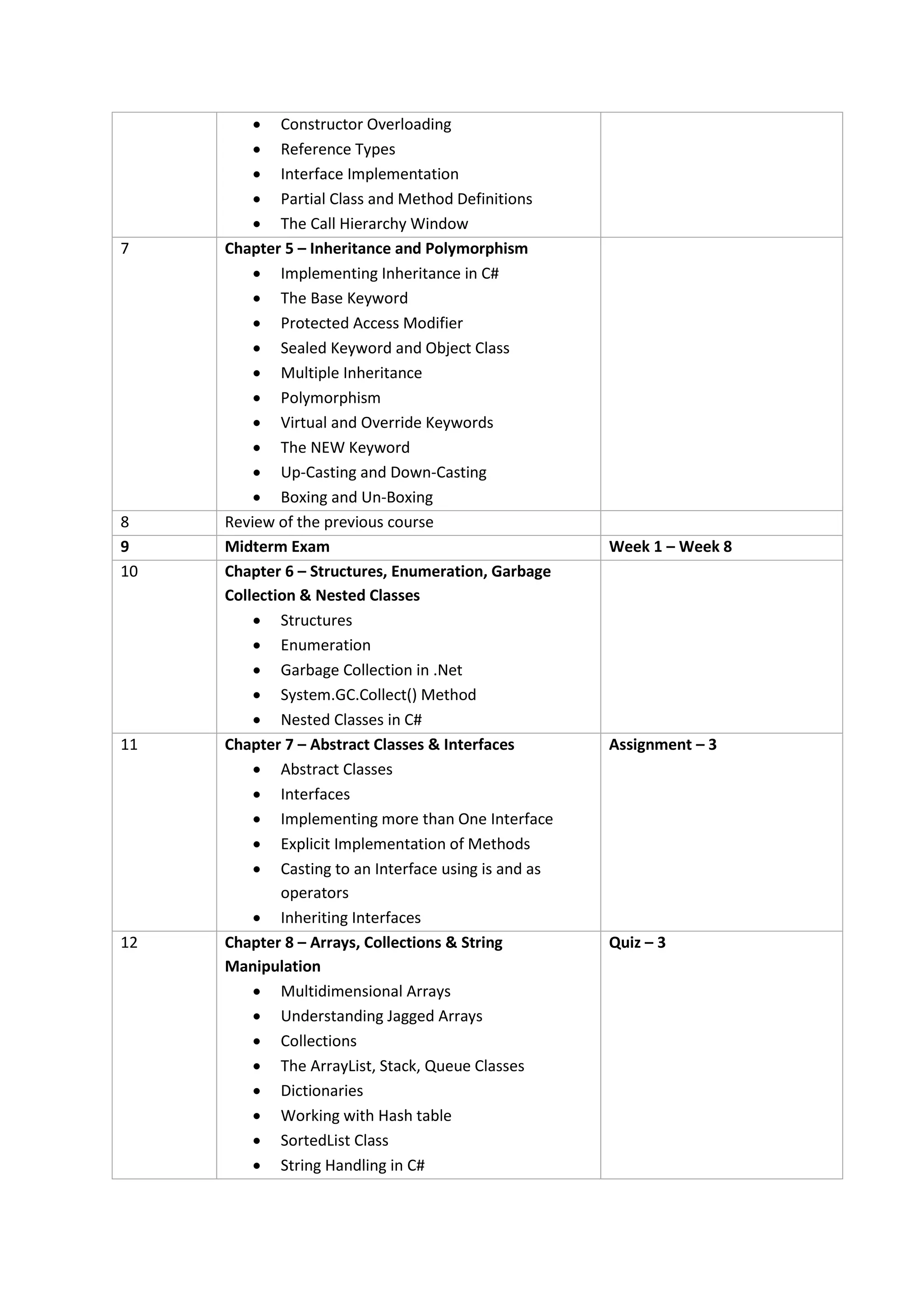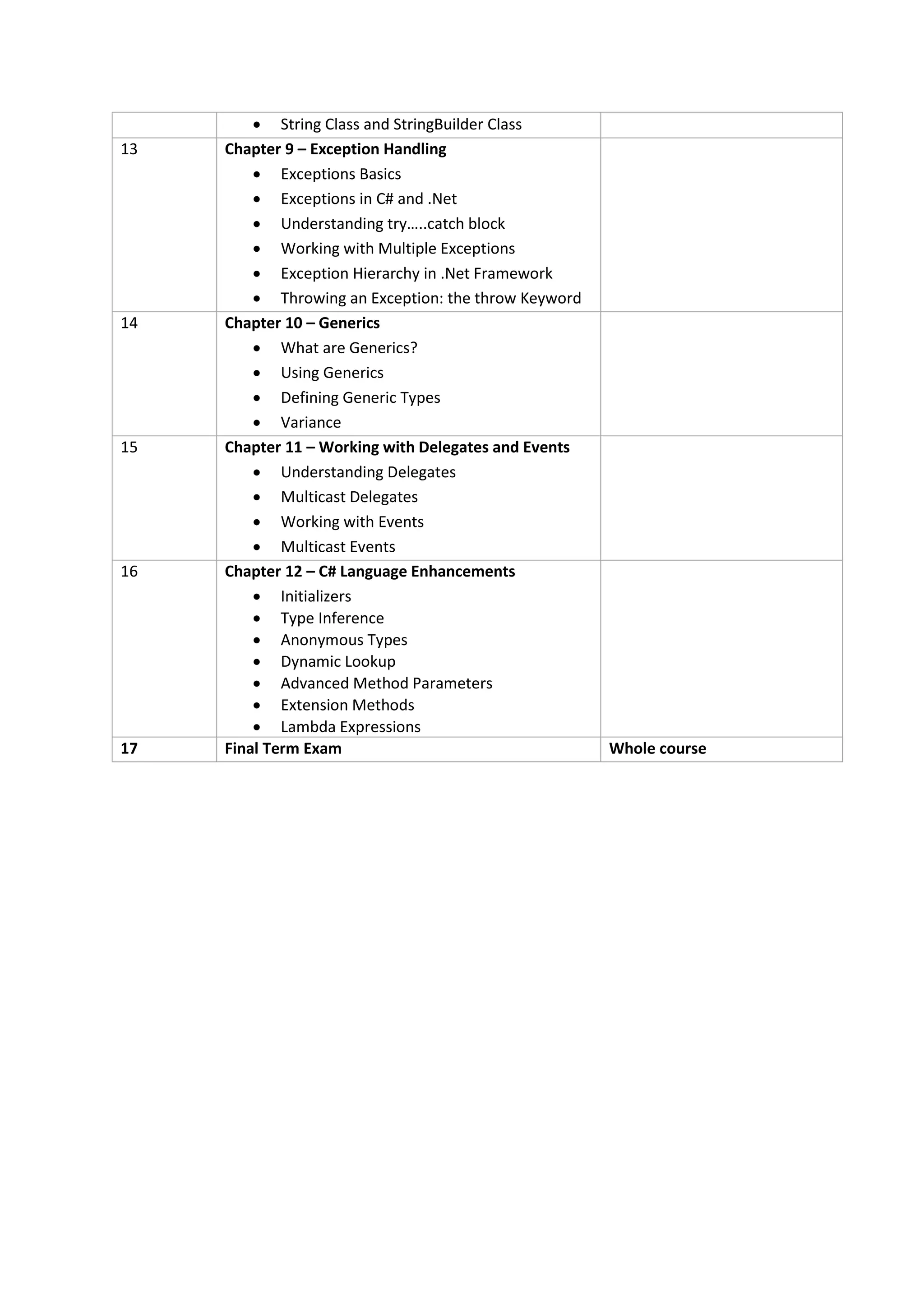This document outlines the course details for CS4443 – Modern Programming Language – I. The 3 credit hour course uses C# and .NET to teach programming skills and has prerequisites of Object Oriented Programming. Grading is based 50% on internal evaluations like assignments, tests, and attendance and 50% on a final exam. The course covers topics like the C# language, OOP, classes, inheritance, exceptions handling, generics, delegates and events over 17 weeks.



